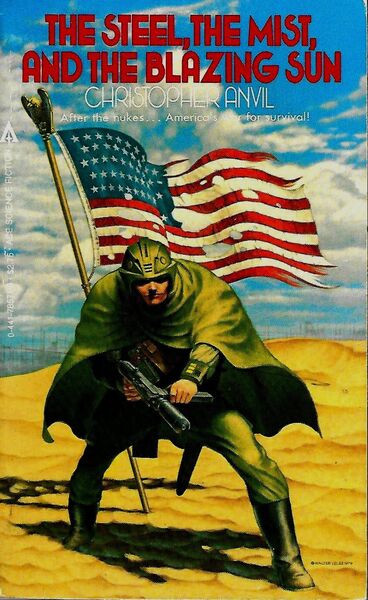1984 revisited
Jul. 6th, 2025 11:41 amB. is re-reading 1984, first time since high school. I also read it in high school, not I think for a class, but I've never attempted to re-read it. It's the bleakest, darkest novel I've ever read, it was searingly memorable and remains fresh in my thoughts, but I don't ever want to delve into it again. I've re-read other dystopias, like The Handmaid's Tale, but Offred remains defiant until the end. Orwell's Winston is just totally crushed, and the rest of the book tends to foreshadow that.
So instead I read this book about 1984. It's in two parts. Orwell said that 1984 was the summation of everything he'd read and done since the Spanish Civil War, which is where he discovered that both sides can be totalitarian. Lynskey goes through all of the ingredients, directly contributory or not, spending a lot of attention on Animal Farm, which is deeply thematically related. Lynskey also disposes of any notion that the year 1984 is any sort of code for 1948, as often suggested. That Winston's environment is based on austerity post-war Britain is a red herring. Orwell picked that as something he could depict, not out of secret hatred of the Labour government.
Orwell died less than a year after the book was published. The second half is the book's posthumous career. This includes consideration of just about every major dystopia concocted in English-language literature or film since then, even if (like Fahrenheit 451 or Brazil) they've little to do with and weren't inspired by 1984. There's also a long and gratifyingly detailed discussion of The Prisoner. But it also covers film and stage adaptations of 1984 itself, and lots of what people have said about the book or about What Orwell Would Be Saying Today. About this last genre, Lynskey is appropriately caustic. "The most inflammatory reputation grab was a story by Norman Podhoretz. 'Normally, to speculate on what a dead man might have said about events he never lived to see is a frivolous enterprise,' he acknowledged, before gamely pressing on to insist that an octogenarian Orwell would have said that Norman Podhoretz was right."
Orwell's particular balanced perspective is widely misunderstood. Normally, especially in Orwell's day but even now, critics of fascism and other leftists tend to make excuses for the Soviet Union and other communist regimes: they're not so bad, Stalin's show trials were misjudged, etc. Visitors to the USSR like Bernard Shaw were totally gulled. Even Jon Carroll writing on Elian Gonzalez thought that Elian's mother was unhinged to make a dangerous flight from the communist paradise of Cuba. And anti-communists tend to have a similar soft spot for the right. Jeane Kirkpatrick praising any dictatorship on the map as long as it was right-wing. Robert Conquest, brilliant excoriator of Soviet terror, offering comparisons as if making excuses for everyone else except the Nazis.
Orwell wasn't like that. He hated totalitarianism, and he hated it equally from either side of the spectrum. He didn't think that the sins of one side made the other side acceptable. People can't see that balance, especially right-wingers who see the depiction of the Soviet-style government in 1984 and especially the Soviet allegory in Animal Farm and assume Orwell would be a right-winger, in favor of capitalism. You'd have to ignore the opening of Animal Farm entirely to think that.
Somebody once summarized Orwell's philosophy - and I think Lynskey quotes this but I can't find it now - as "Capitalism is a disease, socialism is the cure, and communism would kill the patient." Keep that in mind, and your preconceptions won't fool you about Orwell.






